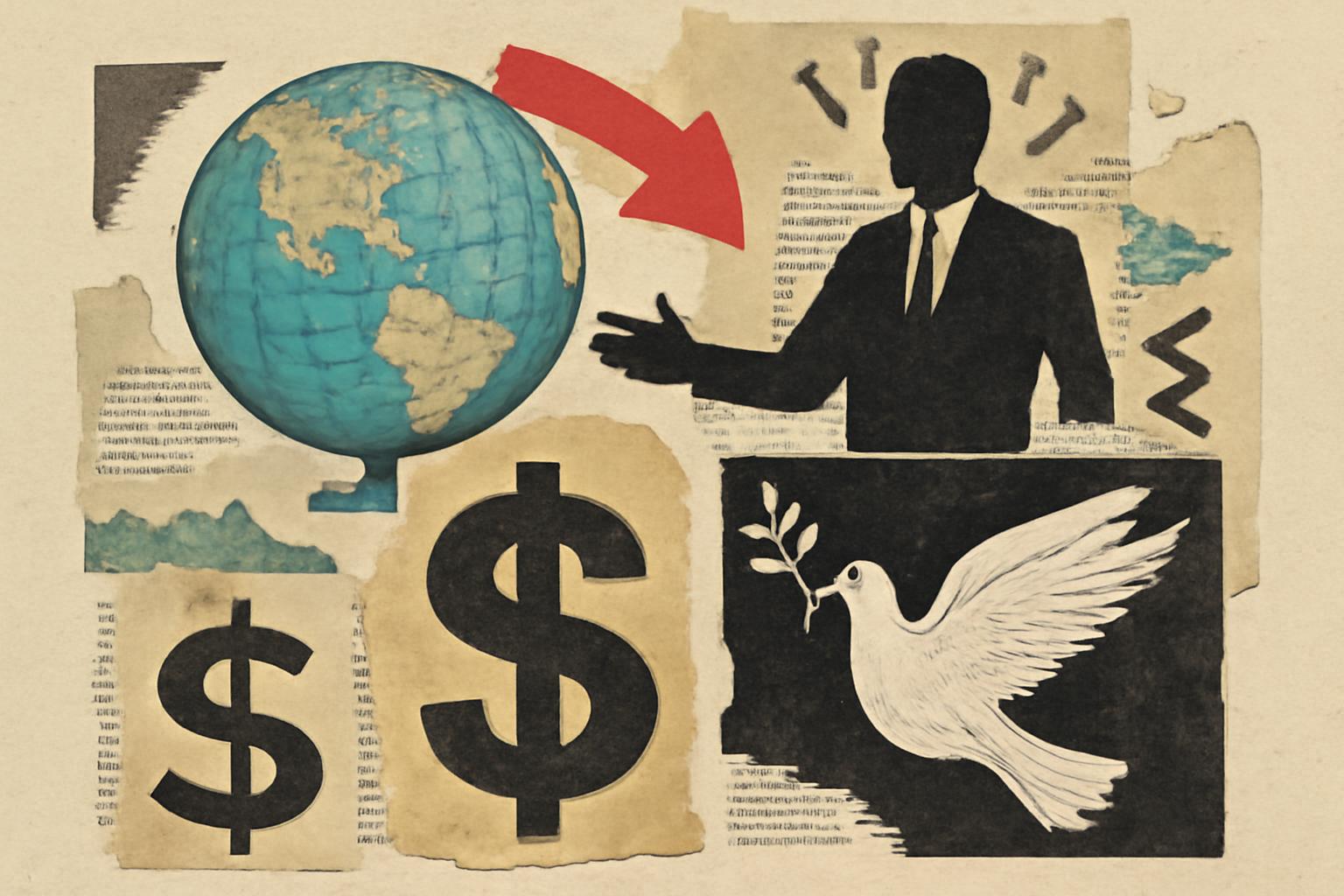The Europeans are trying to snap back UN sanctions on Iran, while Tehran insists the snapback is illegitimate and signals a preference for diplomacy under fair terms. Iran’s ultra-conservative parliament is moving to pull out of the Nuclear Non-Proliferation Treaty, signaling a hard line against new talks. The snapback would reimpose bans on arms, punish regime members, and authorize wide maritime, land, and air inspections—measures that critics warn could disrupt global trade and the oil market. Tehran argues it can weather sanctions, pointing to oil exports (with China as a major buyer) and a sizeable economy, though stress is felt about the harm. The parliament’s NPT exit draft mirrors distrust of new talks, while Tehran’s diplomats offer to negotiate if terms are fair, all while the 30-day window to avert sanctions is ticking.
From a libertarian lens: these developments expose the coercive core of global governance—the enforcement of rules by force, inside and across borders, dressed as diplomacy or security. The state’s toolkit here—the UN’s sanction regime, arms embargoes, asset freezes, invasive inspections, and threat of collective punishment—proves again that centralized power multiplies harm through misused knowledge, moral hazard, and coercive redistribution.
Hayek would warn that the knowledge problem is fatal to any plan to micromanage an economy from on high. The 30-day snapback and sweeping inspections rely on a centralized authority assuming perfect foresight about outcomes. Yet the global economy operates through dispersed information in countless exchanges. Sanctions distort price signals, misallocate resources, and punish ordinary people who are otherwise innocent of policy disputes. Freeing trade, allowing price signals to reflect reality, and removing coercive barriers would enable voluntary adjustment, specialization, and peaceful competitive pressures that actually serve long-run prosperity and innovation. The attempt to weaponize international rules against a state in order to reshape its economy demonstrates why centralized “rules” erode the spontaneous order that knowledge and markets create when left to liberty.
Nozick would frame this in terms of rights and coercive force. The UN’s sanction regime, even when justified by a treaty, rests on collective coercion that violates individual rights to life, liberty, and property through interference with trade and livelihood. If a regime is to justify coercion, it must meet a strict standard of self-defense against direct, identifiable aggression against persons or property. Sanctions and inspections imposed by a coalition against a separate political entity do not neatly satisfy that standard and thus smear the distinction between defense and punishment. The legitimacy of international compacts is problematized when they become tools of coercive policy rather than voluntary associations among peaceful actors. If Iran chooses to withdraw from a treaty, a Nozickian view would insist that any response be non-aggressive and respect the rights of individuals to engage or disengage in voluntary exchange. The moral priority is not to wield coercive external power to enforce policy but to protect individual liberty and property rights, even across borders, through peaceful, voluntary mechanisms.
Rand would condemn the entire regime of sanctions as a monument to collectivist altruism masquerading as policy. The morality of free exchange rests on individual rights and rational self-interest, not on coercive collective projections about “the stability of the world.” Sanctions punish millions who are not responsible for their leaders’ choices and undermine the moral justification for prosperity—namely, voluntary exchange, private property, and the rule of law. The NPT itself reads as a paternalistic treaty that assumes state actors know best and that others should be coerced into a dangerous non-knowledge—an arrangement Rand would view as a violation of individual rights and the principle of self-determination. The remedy, in Rand’s terms, is to reject coercive international regimes, shrink the coercive footprint of government diplomacy, and embrace free, voluntary trade, with defensive protection of individual rights as the only legitimate function of government—domestically and, insofar as it respects rights, internationally.
In sum, the push toward sanctions and the threat of enforcement regimes reveal the state’s habit of substituting force for voluntary cooperation. The libertarian prescription is clear: end coercive sanctions as tools of foreign policy; abandon attempts to micromanage other societies’ choices through fear and punishment; acknowledge that peaceful exchange and private diplomacy outperform state coercion; and let markets, not mandates, determine prosperity and cooperation. The path to a freer, more peaceful order lies in shrinking the state’s reach, not expanding its toolbox of sanctions.
